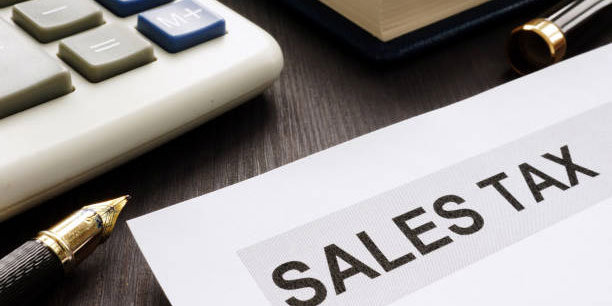If you own a small business, it can sometimes feel like taxes are your nemesis. Trying to figure out the different tax laws and determine what applies to you, what forms need to be filled out, and how much money will ultimately end up in the hands of Uncle Sam — can all become quite daunting.
That's why we've written this blog post to answer some of your most common questions related to how much taxes might cost for a small business.
Here we'll discuss strategies around IRS filing deadlines, deductions that could save you money, and tips on filing correctly for ultimate peace of mind when tax season rolls around. Read on!
How Are Small Businesses Taxed?
Small businesses are subject to various taxes depending on their legal structure and the country's tax laws. Generally, small businesses are liable for income tax, employment taxes, and other applicable taxes.
Here's a brief overview:
Income Tax
Small businesses are typically taxed on their net income. The tax rate and structure vary based on the business's legal structure. For example, in the United States, sole proprietorships and partnerships pass their income through to the owners' tax returns, while corporations are subject to corporate income tax.
Self-Employment Tax
The owners may be subject to self-employment and income tax if the small business operates as a sole proprietorship or a partnership. This tax covers Social Security and Medicare contributions for self-employed individuals.
Employment Taxes
If a small business has employees, it is responsible for withholding and remitting payroll taxes, including federal and state income tax withholding, Social Security, Medicare, and unemployment taxes.
Sales Tax
Small businesses may be required to collect and remit sales tax on their products or services depending on the jurisdiction. Sales tax rates and regulations can vary at the state or local level.
Excise Taxes
Certain industries or activities, such as alcohol, tobacco, fuel, and transportation services, may be subject to specific excise taxes imposed by the government.
Property Tax
Small businesses that own real estate or personal property may be subject to property taxes levied by local governments based on the value of the assets.
Small businesses must understand their tax obligations and comply with relevant tax laws. Many small businesses seek the assistance of accountants or tax professionals to ensure accurate record-keeping, tax planning, and timely compliance with tax obligations.
Consulting with professionals helps small businesses optimize their tax strategies and maximize any available deductions, credits, or incentives to minimize their overall tax liability.
What Taxes Do Small Businesses Pay?

Small businesses are generally required to pay income, self-employment, employment, sales, excise, and property taxes. The exact amount of taxes due will depend on the legal structure of the business and the applicable laws in the jurisdiction.
Small businesses must understand their tax obligations and consult a professional to ensure compliance.
What Is the Small Business Tax Rate by State?
The small business tax rate can vary significantly by state within the United States. Each state has tax laws, including income tax rates, sales tax rates, and other tax obligations that impact small businesses.
Here is an overview of how small business tax rates can differ by state:
Income Tax Rates
State income tax rates can vary widely. Some states, such as Alaska, Florida, Nevada, South Dakota, Texas, Washington, and Wyoming, do not levy an individual income tax. Others, like California, Hawaii, Oregon, and Minnesota, have higher progressive income tax rates that may affect small business owners.
Corporate Income Tax Rates
States that impose a corporate income tax have varying rates as well. For instance, states like Iowa, Pennsylvania, and Illinois have higher corporate income tax rates, while states like North Carolina, Utah, and North Dakota have lower rates.
Sales Tax Rates
Sales tax rates also differ by state and sometimes by local jurisdiction within a state. Some states, such as Delaware, Montana, New Hampshire, and Oregon, have no sales tax. Others, like California, Tennessee, and Washington, have higher combined state and local sales tax rates.
Excise Taxes
Excise taxes can vary depending on the product or service type. For example, gasoline and tobacco taxes can differ significantly from state to state.
Property Tax Rates
Property tax rates can vary at the state, county, and local levels. The rates depend on the assessed value of the property and the jurisdiction's tax policies.
How Much Are the Average Taxes for Small Businesses?

The taxes due for small businesses will vary depending on the business's legal structure, location, and applicable tax laws. Generally, a combination of income, self-employment, employment, sales, excise, and property taxes may apply to small businesses.
It's important to consult a professional or use a reliable tax calculator to determine the amount of taxes you may owe. This will help ensure you accurately account for all applicable taxes and take advantage of any available deductions, credits, or incentives to minimize your tax liability.
How Much Can a Small Business Make Before Paying Taxes?
The amount of income a small business can make before paying taxes depends on the legal structure of the business and the applicable tax laws.
Generally, sole proprietorships and partnerships are subject to income tax on their net profits. Conversely, corporations may be taxed on their gross receipts or net profits depending on the country's tax laws.
It's important to consult an accountant or a tax professional to determine when and how much taxes may be due. This will help ensure you comply with all applicable tax obligations and take advantage of any available deductions, credits, or incentives to minimize your overall tax liability.
With the right advice and careful planning, small businesses can reduce taxes and maximize profitability.
FAQs
Do I have to pay taxes for my small business?
Yes, small businesses are required to pay taxes. The amount and type of taxes you owe for your business will depend on various factors, such as the type of business structure, the location of your business, and the types of income you generate.
Do small businesses pay taxes after every 3 months?
The frequency of taxes for a small business will depend on the estimated tax amount you owe and which type of taxes you are paying. For certain businesses, such as self-employment or corporate income tax, you may be required to pay quarterly estimated taxes. In other scenarios, you may only need to file your taxes once a year.
When are taxes due for my small business?
The due date for taxes varies depending on the type of tax and your business structure. For most businesses, taxes are typically due April 15th of each year. However, you may need to pay estimated taxes throughout the year, depending on the types of taxes you owe.
Conclusion
It's natural to feel overwhelmed when confronted with the tax demands of running a small business. But even if you're not an expert, understanding how taxes work as you come from a place of preparedness and organization can make all the difference in striking the best balance for your financial future.
So take the time to consider our advice- from filing deadlines to deductions and tips— to discover how much taxes might cost your small business and stay ahead of this ongoing procedure. How much are taxes for a small business? By taking control today, you can find out!




